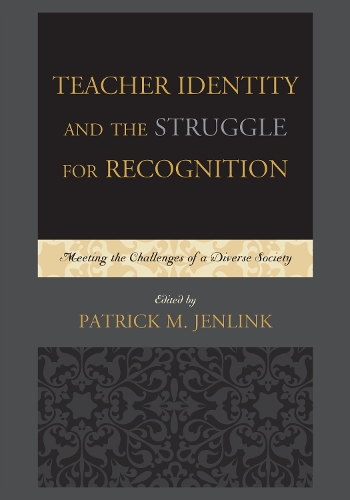
Teacher Identity and the Struggle for Recognition: Meeting the Challenges of a Diverse Society
(Paperback)
Publishing Details
Teacher Identity and the Struggle for Recognition: Meeting the Challenges of a Diverse Society
By (Author) Patrick M. Jenlink
Bloomsbury Publishing PLC
Rowman & Littlefield Education
9th April 2014
United States
Classifications
Professional and Scholarly
Non Fiction
Educational strategies and policy
371.1
Physical Properties
Paperback
290
Width 178mm, Height 249mm, Spine 18mm
612g
Description
Teacher identity is shaped by recognition or its absence, often by misrecognition of others. Recognition as a teacher, or the strong and complex identification with ones professional culture and community, is necessary for a positive sense of self. Increasingly, teachers are entering educational settings where difference connotes not equal, better/worse, or having more/less power over resources. Differences between discourses of identity are braided at many points with a discourse of racism, both interpersonal and structural.
Teacher Identity and the Struggle for Recognition examines the nature of identity and recognition as social, cultural, and political constructs. In particular, the contributing authors to the book present discussions of the professional work necessary in teacher preparation programs concerned with preparing teachers for the complexities of teaching in schools that mirror an increasingly diverse society. Importantly, the authors illuminate many of the often problematic structures of schooling and the cultural politics that work to define ones identity drawing into specific relief the nature of the struggle for recognition that all face who choose to entering teaching as a profession.
Reviews
In this book, Patrick Jenlink has collected a provocative set of essays about the meaning and nature of teacher identity in todays acutely political educational climate. With striking clarity, the essays make two arguments: that invisibility based on cultural difference is a deep threat to public education, and that constructing pedagogy and curriculum for Americas schools based on recognition can be a powerful antidote. -- Marilyn Cochran-Smith, Cawthorne professor of teacher education for urban schools, Lynch School of Education, Boston College
The novelty of this important book is in the way it presents teacher identity within the context of society and culture. It poses a unique perspective of the teacher as a whole, as a professional, and as an individual not only in the classroom, but also in society and cultural contexts. As such, it is a teaching-learning text for teacher educators in addition to all those who care about making the person visible in a global, multicultural society. -- Professor Hanna Ezer, Levinsky College of Education, Israel
One of the first realizations most educators with social justice ambitions make is that teachers who are wont to interrogate their own identity positions are more likely to reproduce inequities in the classroom. Patrick Jenlink and a diverse array of contributors construct an impressive topography of identity that can help educators, educational leaders, and scholars alike understand the varied terrains of identity and do the work necessary to enact such interrogations. Jenlinks book builds nicely on his previous works on the cultural recognition and the struggle for identity in America's schools. -- Kris Sloan, associate professor and chair, Teacher Education Program, St. Edwards University, Austin, Texas
This book invites the reader on a journey of metamorphosis through personal reflection evoking a passionate re-commitment to the human race through action with regards to social and moral responsibility. The voices held on these pages seek to unravel the threat of invisibility while returning significance to ones search for identity. A profoundly important and necessary book not just for teachers, but also for all engaged in the development of others. -- Terri Hebert Ed.D, executive director of teacher preparation programs and associate professor of science education, School of Education, Indiana University South Bend
Author Bio
Patrick M. Jenlink is Professor of doctoral studies in the Department of Secondary Education and Educational Leadership and Director of the Educational Research Center at Stephen F. Austin State University. His scholarly interests are focused on the politics of identity and teaching.
